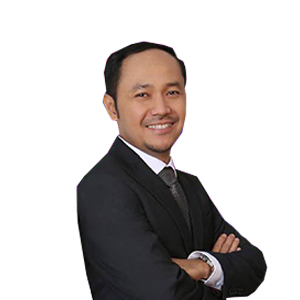LM FEB UI, BRIDGE Webinar Series: Private Sector Changing During Pandemic
Rifdah Khalisha – Public Relations FEB UI
DEPOK – (8/9/2021) The Management Institute of the Faculty of Economics and Business, Universitas Indonesia (LM FEB UI) held a Business Research Insights for Developing Great Executives (BRIDGE) Webinar Series with the theme “Private Sector Changing During Pandemic” on Wednesday (8/9). Presenting Mardijono Nugroho (Director of Engineering and Infrastructure of PT Taman Wisata Candi Borobudur, Prambanan, and Ratu Boko) and Sihol Aritonang (President Director of PT Riau Andalan Pulp and Paper – APRIL Group) as speakers.
Mardijono explained the situation of the tourism and travel sectors – especially temple cultural tourism – in the midst of the pandemic. PT Taman Wisata Candi (TWC) is committed to being a leading and transparent company in the management of historical heritage and tourism in line with the preservation of national cultural sites.
TWC manages 4 business pillars, namely heritage destinations, culture destinations, amenities, and attractions. The heritage destination business includes the management of Borobudur and Prambanan tamples, and the Ratu Boko ruins.
He revealed, “Since the pandemic, the statistics of Indonesian tourist arrivals from July 2019 to July 2021 have decreased by more than 80 percent. The total number of foreign visitors visiting Yogyakarta from July 2019 to July 2021 fell by more than 90 percent.”
“While the TWC Tourist Arrival statistics, total visitors, both from within and outside the country, for cultural tourism of Borobudur, Prambanan, and Ratu Boko decreased by more than 80 percent from 2019 to 2021.” he continued.
Therefore, TWC implements 9 main strategic points of the national tourism recovery plan, namely the application of 3M and health protocols in a disciplined manner, mapping investment opportunities, funding from the Sovereign Wealth Fund (SWF) endowment fund, human resource development, reducing ineffective promotional budgets, development of agro-tourism, improvement of 5 super priority destinations, implementation of health-based tourism, and improvement of communications to attract investors.
Then, the 4 points of the company’s strategic solutions. First, digital transformation, implementing digitalization for internal core business processes by providing the current cashless payment feature in the ticket system and online platform for product sales.
Second, reduce costs, reduce unnecessary expenses, use office electronic platforms to save office equipment costs, and control the costs of all business units.
Third, internal improvement, significantly improving information technology governance through employee coaching and assessment programs to increase capacity and capability.
Finally, external collaboration, collaborating with the government or stakeholders in order to create new business partners and improve the quality of destinations.
After that, Sihol discussed the Asia Pacific Resources International Limited (APRIL) Group. The company manages 450,000 ha of plantation area and 370,000 ha of conservation area located in Riau, Indonesia. While the offices are in Jakarta and Singapore.
Under the auspices of the APRIL Group, PT Riau Andalan Pulp and Paper manages a pulp and paper processing plant in Pangkalan Kerinci. Every year, this world-class technology factory is capable of producing 2,800,000 tons of pulp and 1,150,000 tons of quality paper. In fact, it has marketed its products all over the world.
He said, “Our production guidelines refer to the Sustainable Forest Management Policy 2.0 (SFMP 2.0) and APRIL Vision 2030. Also, the operation of the factory applies lean manufacturing principles for energy and water efficiency and minimizes emissions.”
The pandemic led to the birth of APRIL’s Vision 2030 and various other initiatives. APRIL’s 2030 vision consists of climate positive, implementing science-based solutions to drastically reduce carbon emissions; thriving landscapes, championing conservation as part of a production protection landscape; inclusive progress, empowering employees and communities through transformative initiatives; and sustainable growth, growing the business through diversification, circularity, and responsible production.
“The pandemic has not diminished our long-term commitment to achieving sustainability. We also implemented other initiatives, APRIL Group seeks to identify areas for restoration, measure greenhouse gas (GHG) emissions, maximize biomass utilization in factories, install 1 MW solar panels in closed landfills (from a total of 20 MW in 2030), utilize waste (for example, mud as a substitute for fuel and fly ash for road subgrade), as well as using B30 for diesel needs and B50 pilots for heavy equipment.” he concluded.
(am)

